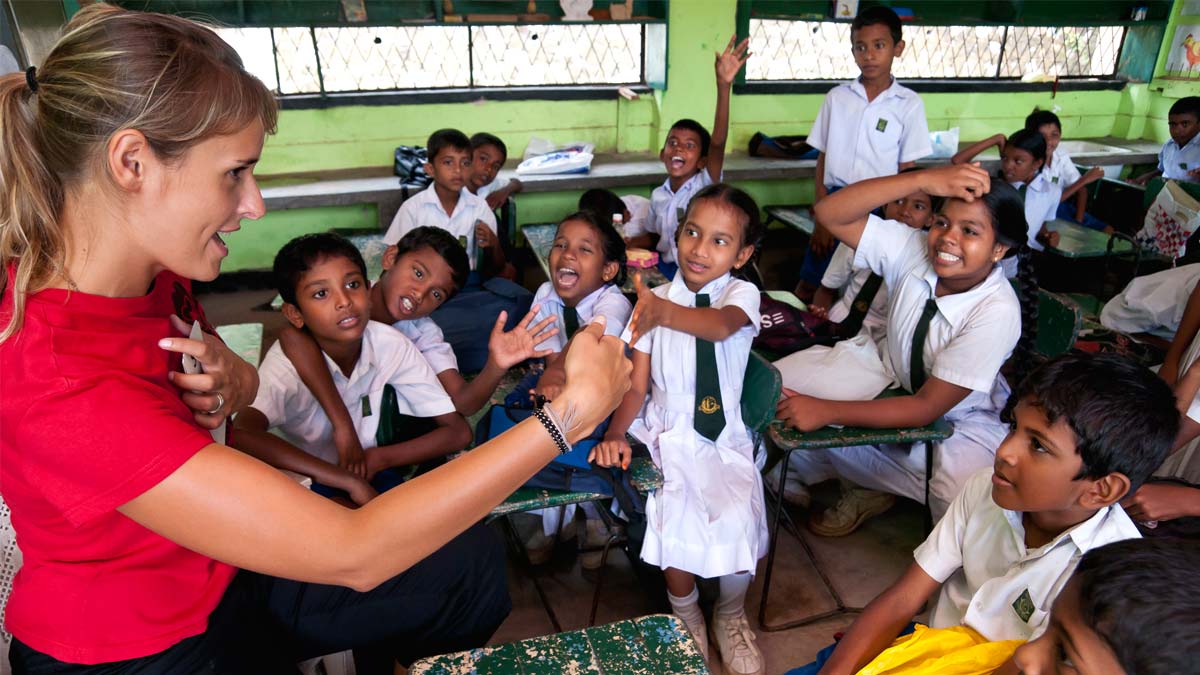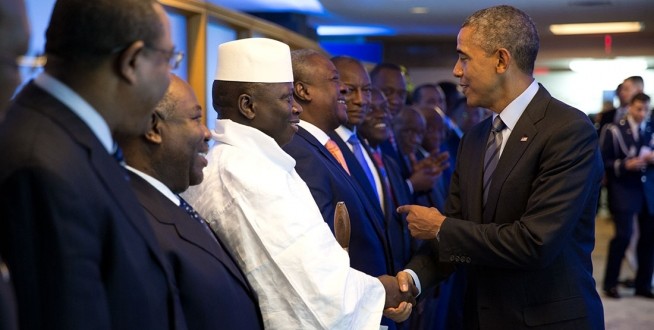WASHINGTON, DC | November 17, 2014 - This week on BIZ+SOCIAL, we bring you the best from the New Global Citizen, HBR, Fast Company, and more.
GLOBAL PRO BONO
Why IBM Gives Top Employees a Month to Do Service Abroad
 “Eight out of 10 participants in the Corporate Service Corps program say it significantly increases the likelihood of them completing their career at IBM,” Stanley Litow, VP of Corporate Citizenship & Corporate Affairs, told us. Recognizing that corporate responsibility can offer a company a competitive advantage today, we became interested in IBM as a pioneer in establishing a skills-based volunteerism initiative that also influences its talent and professional development strategies. Several executives at the company offered to talk with us to figure out why the program has been so successful—not just as a philanthropic gesture, but as a talent development system. As Litow put it, “If participation in these programs increases our retention rate, recruits top talent, and builds skills in our workforce, then it’s addressing the critical issue of competitiveness.” The IBM Corporate Service Corps, a hybrid of professional development and service, deploys 500 young leaders a year on team assignments in more than 30 countries in the developing world. Employees engage in two months of training while working full time, spend one month on the ground on a 6- to 12-member team tackling a social issue, and then mentor the next group for two months. So far, IBMers have completed over 1,000 projects. Read More…
“Eight out of 10 participants in the Corporate Service Corps program say it significantly increases the likelihood of them completing their career at IBM,” Stanley Litow, VP of Corporate Citizenship & Corporate Affairs, told us. Recognizing that corporate responsibility can offer a company a competitive advantage today, we became interested in IBM as a pioneer in establishing a skills-based volunteerism initiative that also influences its talent and professional development strategies. Several executives at the company offered to talk with us to figure out why the program has been so successful—not just as a philanthropic gesture, but as a talent development system. As Litow put it, “If participation in these programs increases our retention rate, recruits top talent, and builds skills in our workforce, then it’s addressing the critical issue of competitiveness.” The IBM Corporate Service Corps, a hybrid of professional development and service, deploys 500 young leaders a year on team assignments in more than 30 countries in the developing world. Employees engage in two months of training while working full time, spend one month on the ground on a 6- to 12-member team tackling a social issue, and then mentor the next group for two months. So far, IBMers have completed over 1,000 projects. Read More…
IMPACT & INNOVATION
The Joint Initiative for Village Advancement Tests Models for Effective Development in Rural India
 What makes a development project successful? I ask myself this question each day I spend designing and managing projects. Development certainly isn’t easy, or perfect. As a social science, it is inexact, subjective, and ever-evolving, striving for objective measurement in imperfect, variable-ridden environments. How can one rely on data to indicate success in what is at its beginning and end a human experience, intervention, or endeavor? As foreign aid passes the quarter and half-century marks in some countries, we practitioners must become ever more mindful of our presence, and the effects thereof. Although investment varies from project to project, monitoring and evaluation is widely accepted as a fundamental pillar of effective development. In their 2013 annual letter, Bill and Melinda Gates re-emphasized the importance of measurement in the global efforts to improve the human condition. Unlike profit generation in the business world, the “bottom line” of development is less straight-forward. Standards of success are predicated on a subjective selection of inherently imperfect data, making “good” development nearly impossible to define. Read more…
What makes a development project successful? I ask myself this question each day I spend designing and managing projects. Development certainly isn’t easy, or perfect. As a social science, it is inexact, subjective, and ever-evolving, striving for objective measurement in imperfect, variable-ridden environments. How can one rely on data to indicate success in what is at its beginning and end a human experience, intervention, or endeavor? As foreign aid passes the quarter and half-century marks in some countries, we practitioners must become ever more mindful of our presence, and the effects thereof. Although investment varies from project to project, monitoring and evaluation is widely accepted as a fundamental pillar of effective development. In their 2013 annual letter, Bill and Melinda Gates re-emphasized the importance of measurement in the global efforts to improve the human condition. Unlike profit generation in the business world, the “bottom line” of development is less straight-forward. Standards of success are predicated on a subjective selection of inherently imperfect data, making “good” development nearly impossible to define. Read more…
LEADERSHIP
How to Make a Difference With Your Work
 For funders trying to create large-scale social change—whether it’s making sure all children in a city can succeed or improving the environment—developing leaders who can clearly define and manage toward results is an essential first step in getting the best possible return on investment. All too often, in the rush to get started on an initiative leaders overlook the importance of defining and naming the result they seek. Failing to do so can undermine their efforts from the beginning. Naming a result means stating clearly what success looks like—giving partners, grantees, and others an aspirational target against which they can align their leadership. It literally puts everyone on the same page so everyone is clear about what they are working together to achieve. This requires leaders to look beyond their specific programs and organizations and focus on the larger population that can benefit from their work. The Annie E. Casey Foundation’s results-based leadership approach is our effort to create such leaders. It guides groups of leaders from across a sector, community, or initiative to define their population—which might be all children in a city—and then helps those leaders discuss the big vision they would most like to see become a reality for all of those children. Read More…
For funders trying to create large-scale social change—whether it’s making sure all children in a city can succeed or improving the environment—developing leaders who can clearly define and manage toward results is an essential first step in getting the best possible return on investment. All too often, in the rush to get started on an initiative leaders overlook the importance of defining and naming the result they seek. Failing to do so can undermine their efforts from the beginning. Naming a result means stating clearly what success looks like—giving partners, grantees, and others an aspirational target against which they can align their leadership. It literally puts everyone on the same page so everyone is clear about what they are working together to achieve. This requires leaders to look beyond their specific programs and organizations and focus on the larger population that can benefit from their work. The Annie E. Casey Foundation’s results-based leadership approach is our effort to create such leaders. It guides groups of leaders from across a sector, community, or initiative to define their population—which might be all children in a city—and then helps those leaders discuss the big vision they would most like to see become a reality for all of those children. Read More…
ENTERPRISE DEVELOPMENT
U.S.-Africa Leaders Summit Convenes Leaders to Transform a Continent
 At the U.S.-Africa Leaders Summit this summer, Tony Elumelu, one of Africa’s most successful entrepreneurs and philanthropists, called for a change in the perception of business in Africa. “Drugs should not define U.S.-Latin American relations. Religious conflict should not define U.S.-Middle East relations. And natural resources and humanitarian assistance alone should not define U.S.-Africa relations.” At the invitation of President Obama, African heads of state and business leaders from across the United States and Africa gathered in Washington, D.C. for the first U.S.-Africa Leaders Summit, seeking to advance a new paradigm for U.S.-Africa relations.The first day of the landmark event was dedicated to the U.S.-Africa Business Forum which sought to strengthen financial and trade ties between Africa and the United States. During the Forum, leading U.S. corporations announced commercial partnerships with African entities, and African political and business leaders articulated ways in which they believe the future of the continent’s business sector will be fundamentally different from in the past. “In many ways, it was an enormous ‘know your customer’ investment that’s sure to pay dividends in the coming years,” said Aubry Hruby, Visiting Fellow at Africa Center at The Atlantic Council. Less than three months later, the latest Ebola outbreak threatens to delay this outcome. Read more…
At the U.S.-Africa Leaders Summit this summer, Tony Elumelu, one of Africa’s most successful entrepreneurs and philanthropists, called for a change in the perception of business in Africa. “Drugs should not define U.S.-Latin American relations. Religious conflict should not define U.S.-Middle East relations. And natural resources and humanitarian assistance alone should not define U.S.-Africa relations.” At the invitation of President Obama, African heads of state and business leaders from across the United States and Africa gathered in Washington, D.C. for the first U.S.-Africa Leaders Summit, seeking to advance a new paradigm for U.S.-Africa relations.The first day of the landmark event was dedicated to the U.S.-Africa Business Forum which sought to strengthen financial and trade ties between Africa and the United States. During the Forum, leading U.S. corporations announced commercial partnerships with African entities, and African political and business leaders articulated ways in which they believe the future of the continent’s business sector will be fundamentally different from in the past. “In many ways, it was an enormous ‘know your customer’ investment that’s sure to pay dividends in the coming years,” said Aubry Hruby, Visiting Fellow at Africa Center at The Atlantic Council. Less than three months later, the latest Ebola outbreak threatens to delay this outcome. Read more…
CITIZEN DIPLOMACY
Twenty-Five Years Later, A Citizen Diplomat Reflects on the Fall of the Berlin Wall
 A quarter century later, I remember the day the Wall fell as though it was yesterday. On November 9, 1989, the world changed. As a student in the Soviet Union a few years earlier, I had come to understand Russia’s history and culture, making lifelong friends along the way. I remember the elation I felt upon hearing and seeing the news. So many lives changed, including mine. A year later, I uprooted my life and moved to Moscow for a four-month assignment at a university. I stayed for nine years. I fell in love with the Russian language, Russia’s culture, and her people. Many Russians are among my closest friends in the world. I married a Russian, and we are raising bilingual, bi-cultural children. Yet, over all these years, I had never journeyed to Berlin to pay homage to those courageous enough to overturn the world order. For years, I anticipated the joy and humility I would feel when I finally made the pilgrimage. This September, the opportunity to visit Berlin finally presented itself. Just weeks before the 25th anniversary of the re-opening of the East-West gates, I stood at Checkpoint Charlie, and then at the Berlin Wall Memorial, and choked back tears. Having spent a great deal of my life and my career working towards collaboration between the United States and Russia, I felt a cascade of feelings. Read More…
A quarter century later, I remember the day the Wall fell as though it was yesterday. On November 9, 1989, the world changed. As a student in the Soviet Union a few years earlier, I had come to understand Russia’s history and culture, making lifelong friends along the way. I remember the elation I felt upon hearing and seeing the news. So many lives changed, including mine. A year later, I uprooted my life and moved to Moscow for a four-month assignment at a university. I stayed for nine years. I fell in love with the Russian language, Russia’s culture, and her people. Many Russians are among my closest friends in the world. I married a Russian, and we are raising bilingual, bi-cultural children. Yet, over all these years, I had never journeyed to Berlin to pay homage to those courageous enough to overturn the world order. For years, I anticipated the joy and humility I would feel when I finally made the pilgrimage. This September, the opportunity to visit Berlin finally presented itself. Just weeks before the 25th anniversary of the re-opening of the East-West gates, I stood at Checkpoint Charlie, and then at the Berlin Wall Memorial, and choked back tears. Having spent a great deal of my life and my career working towards collaboration between the United States and Russia, I felt a cascade of feelings. Read More…
MORE
“Global Citizenship” is Becoming a Brand Instead of a Way of Being
Translating Sustainability Strategy into Practice
The Business Perspective to Addressing Africa’s Skills Gap
What The Heck Is A ‘Sister City’ Anyway?
New Global Citizen
The New Global Citizen chronicles the stories, strategies, and impact of innovative leadership and international engagement around the world. This is the world of the new global citizen. This is your world.





